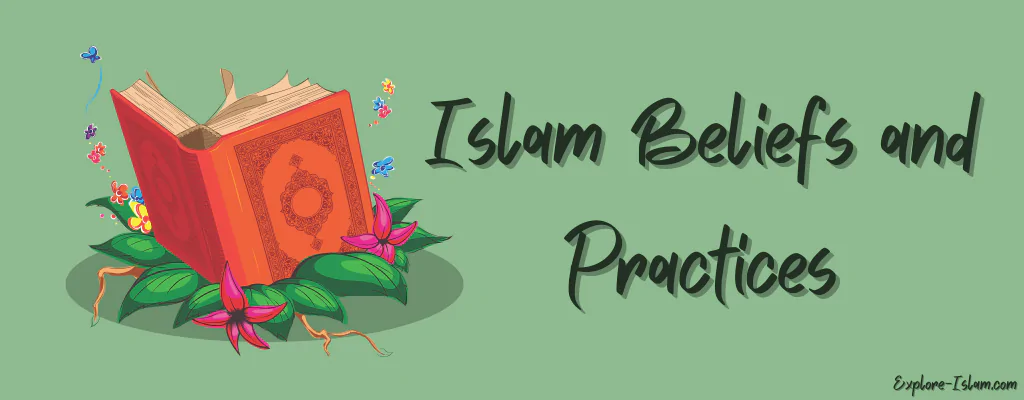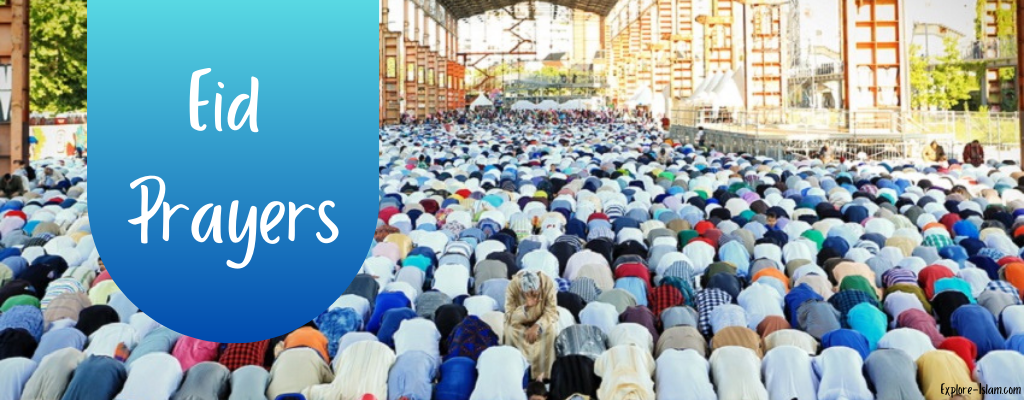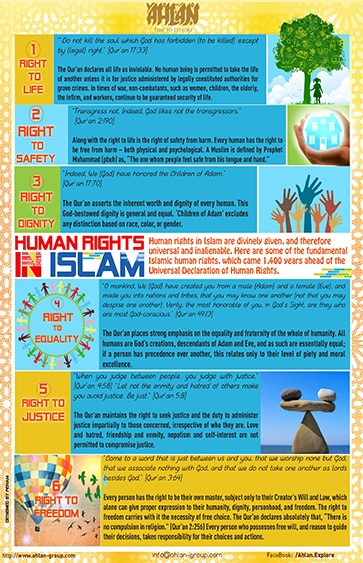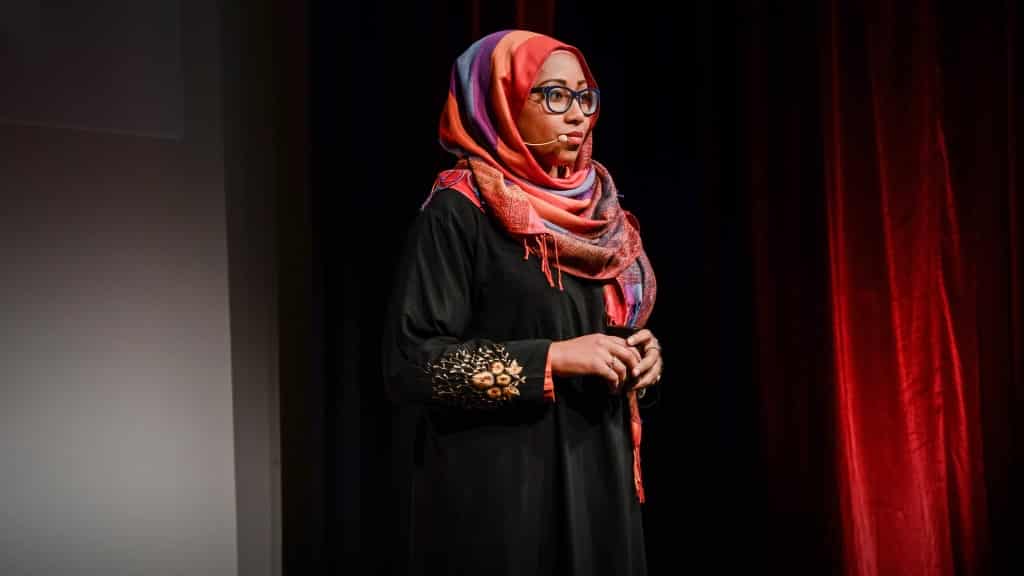SUMMARY:
Islam: One God (Allah), Quran, Prophet Muhammad. Five Pillars: Faith, prayer, charity, fasting, pilgrimage.
In a nutshell: Islam’s core beliefs are centered around the oneness of Allah, belief in angels, holy books, prophets, the Day of Judgment, and predestination. These beliefs guide Muslims in their daily practices, including the five pillars: Shahada (faith), Salat (prayer), Zakat (charity), Sawm (fasting), and Hajj (pilgrimage), forming a comprehensive framework for spiritual and moral living.
Islam is one of the world’s major religions, with over 1.8 billion followers worldwide. Its teachings are based on the belief in one God [Allah] who is the Creator and Sustainer of the universe. In Islam, Muhammad (peace be upon him) is the final prophet and messenger sent by Allah to guide humanity. The holy book of Islam is the Quran, which is the literal word of Allah, revealed to Prophet Muhammad (peace be upon him) over 23 years.
In this article, we will examine the basic beliefs of Islam that every Muslim must believe in. Then, we will explore, in some detail, the six Pillars of Faith. These are belief in Allah, His Angels, His Books, His Messengers, the Last Day, and Predestination. Then, we will examine the Pillars of Islam. These are the Testimony of Faith, Prayer, Charity, Fasting during Ramadan, and Pilgrimage.
Here we will learn the following:
1. Belief In Allah (The Only One God):
Muslims believe in the absolute oneness of Allah, who is the sole Creator, Sustainer, and Ruler of the universe. Allah is eternal, all-knowing, and all-powerful. He has no partners, associates, or children, and is beyond human comprehension. The belief in the oneness of Allah is central to Islam and is at the heart of the declaration of faith: “There is no god but Allah”.
This fundamental belief is encapsulated in the Al-Ikhlas Chapter of the Quran:
“Say, ˹O Prophet,˺ “He is Allah—One and Indivisible ۞ Allah—the Sustainer needed by all ۞ He has never had offspring, nor was He born ۞ And there is none comparable to Him۞”
(Quran, 112)
These four verses give the essence of Islamic theology in its purest form. It emphasizes that Allah is eternal, self-sufficient, and has no equals or partners. It rejects any form of polytheism or the idea of God having a son. It serves as a reminder of the pure monotheism that is central to Islamic belief.
2. The Belief In Angels:
Muslims believe that Allah created angels from light and that they are His messengers who carry out His commands. Angels are obedient creatures who never disobey Allah. They have various roles, such as recording human deeds, delivering Allah’s revelations to the prophets, etc. The most well-known angels in Islam include Gabriel, who delivered Allah’s revelations to the prophets.
In this regard, Allah says in the Quran:
“The Messenger ˹firmly˺ believes in what has been revealed to him from his Lord, and so do the believers. They ˹all˺ believe in Allah, His angels, His Books, and His messengers.”
(Quran: 2:285)
Here, Allah declares that all Muslims including the Messenger [Prophet Muhammad (peace be upon him)] are to believe in the existence of the noble angels.
3. The Belief In The Holy Books:
Muslims believe that Allah revealed His guidance through scriptures to various prophets throughout history. The main holy books include:
- The Scrolls (Suhuf): Given to earlier prophets, including Abraham
- The Psalms (Zabur): Revealed to Prophet David
- The Torah (Tawrat): Revealed to Prophet Moses
- The Gospel (Injil): Revealed to Prophet Jesus
- The Quran: The final and unaltered revelation given to Prophet Muhammad
However, Muslims believe that while these previous scriptures were true revelations, they have been lost or altered over time. What remains today (the Bible, which includes the Old and the New Testaments) has been heavily manipulated and corrupted. As for the Quran, it is the final word of Allah, that will remain unaltered till the End of Time.
In this regard, Allah says:
“We have revealed to you ˹O Prophet˺ this Book with the truth, as a confirmation of previous Scriptures and a supreme authority on them.”
(Quran, 5:48)
What makes the Quran “a supreme authority” on the previous Scriptures is that it came to correct their human-made mistakes and is preserved till the Day of Judgment, with no change or corruption whatsoever.
4. The Belief In The Prophets:
Muslims believe that Allah sent prophets throughout history to guide humanity toward worship of the one true God and righteousness. These prophets were chosen individuals who conveyed Allah’s messages and demonstrated exemplary conduct. It is narrated that the prophets and messengers of Allah were more than 100k, each of them sent to his town/country/region in the language of his people.
The Seal Of The Prophets
The final prophet in Islam is Prophet Muhammad (peace be upon him), who is considered the Seal of the Prophets, meaning no prophet will come after him. Unlike the previous prophets and messengers, Prophet Muhammad (peace be upon him) was sent to all mankind from his time till the Day of Judgment, regardless of their countries, mother tongues, cultural backgrounds, etc.
In this context, Allah says in the Quran:
“Indeed, We have sent revelation to you ˹O Prophet˺ as We sent revelation to Noah and the prophets after him. We also sent revelation to Abraham, Ishmael, Isaac, Jacob, and his descendants, ˹as well as˺ Jesus, Job, Jonah, Aaron, and Solomon. And to David We gave the Psalms.”
(Quran, 4:163)
In this verse, Allah mentions some of the notable prophets in Islam, including the five Mighty Prophets (Olo Al-Azm) of Allah in Islam: Noah, Abraham, Moses, and Jesus and Muhammad (peace be upon them all).
5. The Belief In The Day Of Judgment:
Muslims believe in a Final Day of Judgment when every person will be resurrected and judged by Allah for their deeds in this life. People will be rewarded with eternal Paradise (Jannah) – by virtue of Allah’s grace and mercy – if their deeds are righteous and in accordance with Allah’s guidance, or they will be punished in Hell (Jahannam) if they have lived a life of disbelief and wrongdoing.
This belief emphasizes personal responsibility and the importance of living a righteous life in preparation for the afterlife.
Allah says in the Quran:
“The disbelievers claim they will not be resurrected. Say, ˹O Prophet,˺ “Yes, by my Lord, you will surely be resurrected, then you will certainly be informed of what you have done. And that is easy for Allah.”
(Quran, 64:7)
Here is a confirmation by Allah that all humans who ever lived from the time of Adam till the End of Time will be resurrected, be informed about what they have done, and be given their due reward or punishment accordingly. This is an easy mission for Allah who has already created them from nothing.
6. The Belief In Predestination (Qadar):
Muslims believe in Qadar, or Predestination, meaning that everything in the universe, both good and bad, is predestined by Allah. Allah has knowledge of everything that happens and has a plan for each individual, though humans are still given free will to make choices. This belief teaches Muslims to trust in Allah’s wisdom and to accept both the joys and hardships of life as part of His plan.
This belief is highlighted in the following verse of the Quran:
“Indeed, We have created everything, perfectly preordained.”
(Quran, 54:49)
Here, Allah clarifies that everything is under His will and knowledge. This belief in Predestination helps Muslims cultivate a sense of both personal accountability and trust in Allah’s will.
The pillars of Islam:
The Pillars of Islam [Aka “Arkan Al-Islam”], are the five fundamental acts of worship and practice that form a comprehensive foundation of a Muslim’s faith and actions. These pillars define the framework for a Muslim’s spiritual and moral life, helping them maintain a close connection to Allah and fostering a sense of discipline, social justice, and community cohesion.
The five pillars of Islam are mentioned in the following Hadith by Prophet Muhammad (peace be upon him):
“Islam is based on five things: the testimony that there is no god but Allah and that Muhammad is His servant and messenger, the observance of the prayer, the payment of Zakat, the Pilgrimage, and the Fast during Ramadan.”
(Sahih Al-Bukhari and Sahih Muslim)
In this Hadith, Prophet Muhammad (peace be upon him) explores the 5 pillars of Islam. Now let’s explore them in some detail.
1. The Testimony Of Faith (Shahada):
The Shahada is the declaration of faith, and is the most fundamental pillar of Islam. A Muslim must sincerely believe in and recite the following testimony:
“There is no god but Allah, and Muhammad is the messenger of Allah.”
This statement affirms the oneness of Allah and the prophethood of Muhammad (peace be upon him), signifying a Muslim’s submission to the will of Allah and acceptance of Muhammad (peace be upon him) as the final prophet.
2. The Prayer (Salat):
Salat refers to the five daily prayers that Muslims perform at prescribed times throughout the day. These prayers are:
- Sobh: Consists of 2 Rakaa and is Performed before sunrise
- Dhuhr: Consists of 4 Rakaa and is Performed after midday
- Asr: Consists of 4 Rakaa and is Performed in the afternoon
- Maghrib: Consists of 3 Rakaa and is Performed just after sunset
- Isha: Consists of 4 Rakaa and is Performed at night
Salat serves as a constant reminder of a Muslim’s connection to Allah and is an expression of submission, gratitude, and supplication. Muslims face the city of Mecca (the Kaaba) during prayer.
Obligatory Salat is mentioned in so many sections of the Quran, including:
“Indeed, performing prayers is a duty on the believers at the appointed times.”
(Quran, 4:103)
In this part of the verse, Allah declares that daily prayers are obligatory at specific times of the day for all Muslims.
3. Giving Charity (Zakat):
Zakat is the practice of giving charity to help those in need. It is considered both an act of worship and a form of social justice. Muslims are required to give a portion of their saved wealth (usually 2.5% of savings) to the poor and needy each year. This helps purify one’s wealth and promotes the redistribution of resources within the community, reducing poverty and inequality.
In this regard, Allah says in the Quran:
“…and who give the rightful share of their wealth ۞ to the beggar and the poor”
(Quran, 70:24-25)
In this part of the verse, Allah confirms that giving Zakat is obligatory for all wealthy Muslims.
4. Fasting During Ramadan (Sawm Ramadan):
Sawm Ramadan refers to fasting during the Islamic holy month of Ramadan, which is the ninth month of the Islamic lunar calendar. Muslims fast from dawn until sunset, abstaining from food, drink, smoking, and marital relations during daylight hours.
Fasting is seen as an act of self-discipline and spiritual reflection. The fast is broken each day with a meal called Iftar, and the fast begins with a pre-dawn meal called Suhoor.
In the Quran, Allah says about Sawm Ramadan:
“O believers! Fasting is prescribed for you—as it was for those before you”.
(Quran, 2:183)
Here, Allah commands Muslims to fast during the month of Ramadan, like those who came before them who were also commanded by Allah to fast.
5. Performing Pilgrimage To Mecca (Hajj):
Hajj is the pilgrimage to the holy city of Mecca in Saudi Arabia, which every Muslim is required to undertake at least once in their lifetime, provided they are physically and financially able. The pilgrimage takes place annually during the Islamic month of Dhul-Hijjah and involves a series of rituals performed in and around Mecca, including walking around the Kaaba and remembering the sacrifices made by the Prophet Ibrahim (Abraham) and his family (peace be upon them).
The Hajj represents a profound spiritual journey of repentance, purification, and equality before Allah, as Muslims from all over the world gather to perform the rites together, regardless of their race, nationality, or social status.
In the Quran, Hajj is mentioned in so many verses, such as:
“Complete the pilgrimage and minor pilgrimage for Allah.”
Here, Hajj (the pilgrimage) is obligatory for Muslims at least once in their lifetime, while Ummrah (minor pilgrimage) is not obligatory, but is highly recommended for Muslims as many times as they can.
What are the pillars of Faith in Islam?
The Pillars of Faith in Islam [Aka the Six Articles of Faith] are the core beliefs that every Muslim is expected to hold. These Pillars guide a Muslim’s relationship with Allah, their understanding of the world, and their responsibilities in life. They are mentioned in the following Hadith:
It was narrated that a man came to Prophet Muhammad (peace be upon him) and asked him:
“O Messenger of Allah, tell me what is faith [or about faith]. He said: “To believe in Allah, His Angels, His Books, His Messengers, the Last Day, and to believe in Al-Qadar.` – Sufyan said: I think he said: `… both good and bad.`”
(Musnad Ahmad 374)
In this Narration, Prophet Muhammad (peace be upon him) is asked about the Pillars of Faith. He replied that they are six: Belief in Allah, His Angels, His Books, His Messengers, the Last Day, and Al-Qadar [that is Predestination] whether good or bad. Let’s explore these below in more detail.
Conclusion
To sum up, the beliefs and practices of Islam form a holistic and comprehensive way of life, centered around the worship of one God, Allah, and guided by the teachings of the Quran and the Sunnah of Prophet Muhammad (peace be upon him). Both Pillars of Faith and Pillars of Islam provide Muslims with a clear framework to understand their relationship with the Creator, the world, and the afterlife.
Islam’s emphasis on submission to Allah’s will fosters a deep sense of inner peace, spiritual growth, and personal responsibility, while also promoting social harmony, charity, and equality. Overall, Islam provides a balanced and ethical approach to life, where faith and practice are intertwined, guiding individuals toward moral integrity, compassion for others, and a strong and meaningful connection to Allah.
















